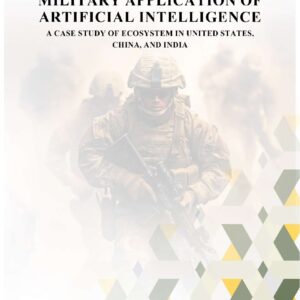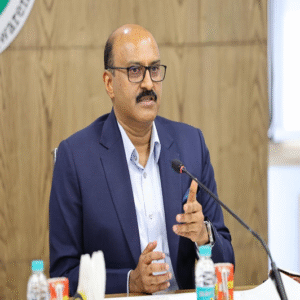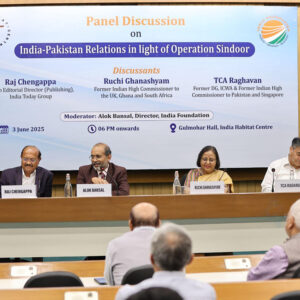~By Raghav Pandey
John F. Kennedy who served as America’s 35th President said before a few weeks of his tragic death that “I can tell you that there is nothing that has occupied our attention more than India in the last nine months.” The year we are talking is 1963 and hence even the sincerest students of history will be forced to reread that statement of Kennedy, thinking that he must have meant Cuba or the USSR. This is the period when the USA was reeling with the Cuban missile crises and hence China’s attack on India posed a monumental foreign policy challenge for the Kennedy administration.
In 1962 the world came within a hairsbreadth of the third world war due to the Cuban Missile crises. Nikita Khrushchev famously blinked and withdrew Soviet nuclear weapons from the Caribbean island. In exchange, Kennedy removed US nuclear weapons from Turkey without much hue and cry.
Not many people will recall that the first wave Chinese attack on India came just five days after the CIA uncovered the presence of Soviet missiles in Cuba. Kennedy himself admitted that it was a “climactic period” for his administration.
The then US Ambassador to India John Kenneth Galbraith, was a plenipotentiary diplomat, who was very close if not the closest diplomat to the President. He writes “In the same week, on almost the same day, that the two great western powers confronted each other over Cuba, the two great Asian countries went to war in the Himalayas.”
In the western minds of contemporary history there is a huge disparity in terms of memories of Indo-China war and the Cuban missile crises. The Kennedy Presidential Library boasts of hundreds of books on the Cuban missile crises but not a single one on Indo-China war. Bruce Riedel, who has been the National Security Advisor to four Presidents writes that one book which needs to be in that library. The book is a gem on sophisticated contemporary history writing. This book is the pioneer document which illustrates the role of Kennedy in the war.
America’s help to India in the war is still a subject of political debate, successive Congress led dispensations in India have denied the fact that Nehru even asked for America’s help ever, naturally such a line would have conflicted with the then policy of non-alignment. Also, Nehru advocated “Hindi-Chinibhaibhai” and was very disdainful of the USA.
Eventually when Mao Zedong attacked India, India’s army was too stretched out and most of the troops remained deployed on the western border due to the fear of a possible second front by Pakistan. Nehru was left with little choice and he in due course sought help from Kennedy. Riedel claims that Kennedy gave his unconditional support to India and immediately sanctioned military aid to that effect, he writes “by November 2, eight flights a day were each bringing in twenty tons of supplies to Calcutta…. The Royal Air Force (RAF) also soon began air-lifting supplies to India, and London was consulting with Australia, New Zealand, and Canada on providing aid from the British Commonwealth”
Riedel emphasises that due to the above, Mao Zedong became conscious of the fact that America meant business in this war and the situation might escalate to the level of Korean war. Mao certainly would have wanted to avoid a second ground level confrontation with the Americans like that in Korea. It might also be pertinent to factor in the position of Soviets at this juncture. As per Riedel, Mao kept Stalin in loop and informed him before attacking in India as a gesture of communist comradery, where Stalin was the leader of the communist world. But this argument of Riedel is obviously open to scrutiny and subject to debate, but the fact that Soviets didn’t supply the promised MIG-21 fighter jets is explanatory of the fact that Stalin had sided with Mao.
The author successfully builds a case for Kennedy, where he is projected as one of the most favourable US Presidents for India. This narrative should cautiously be viewed in the backdrop of Korean War, where a decade ago USA was forced into a stalemate through Chinese hands. Hence, the foreign policy shifts of USA towards India which Riedel claims, can have underpinnings in the decade old war. Hence, Kennedy was left with very little choice but to support India.
Riedel also discusses in the book the Pakistani angle very elaborately. He highlights that the Kennedy administration was almost blackmailed by the Ayub Khan administration by leveraging a covert CIA base in Peshawar which was critical for the U2 flights that took off over Tibet. He also brings to light that the CIA intervention in Tibet became a major irritant in Mao’s eyes and he was led to believe that India was complicit in this with the CIA which in fact was Pakistan. More importantly the author’s hypothesis that Pakistan was tremendously pressured by Kennedy to not open the western front of war with India is quite believable because what else was stopping Pakistan.
During the last periods of the second and the more devastating wave of Chinese attack on India, Robert McNamara, the Secretary of Defense to Kennedy apprised him “we should recognize that in order to carry out any commitment to defend India against a substantial Chinese attack, we would have to use nuclear weapons.” To this Kennedy responded, “We should defend India, and therefore we will defend India if she were attacked”. The above passage is perhaps the most interesting part of the book which has been sourced from the secret tape recordings of that era. This suggests that Kennedy was willing to go to any length to protect India. Riedel also claims that the overall attitude and functioning of Kennedy at that time suggested that it was President who was preparing for war.
The above argument of the author is obviously his perception, but it is imperative to note that the Chinese forces withdrew and declared ceasefire shortly after this conversation happened in the White House. Hence, there is some substance in what the author has highlighted in terms of the possible use of nuclear weapons.
The most important takeaway from this book for India’s foreign policy enthusiasts is perhaps the utter failure of Indian diplomacy in the Johnson and Nixon eras which followed Kennedy. The same country – the USA, which was giving military aid to India in 1962 was looking to intervene against India in 1971 for Pakistan. Hence, this book is about seizing opportunities in International relations at critical junctures and building strategic partnerships at opportune moments.



